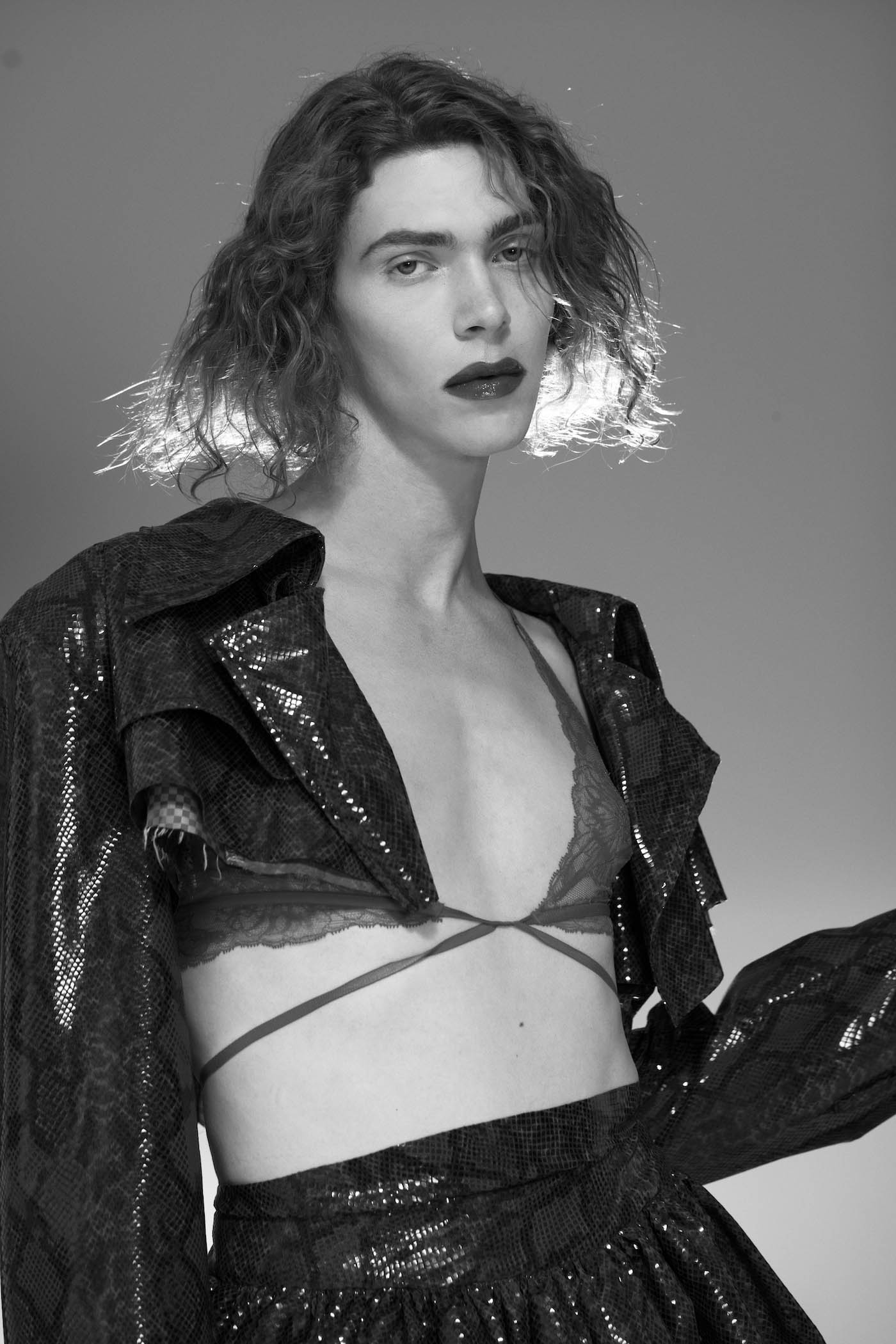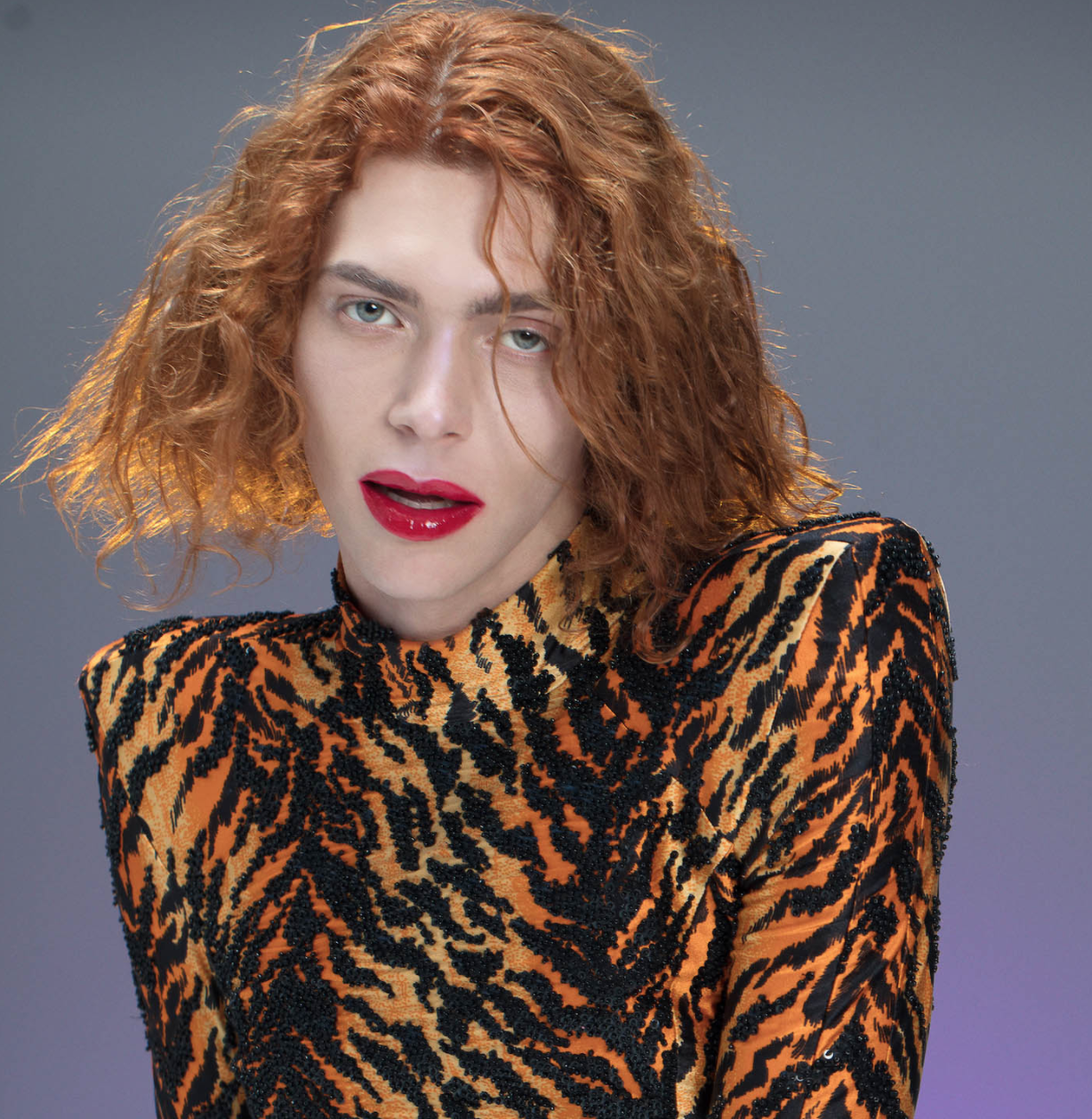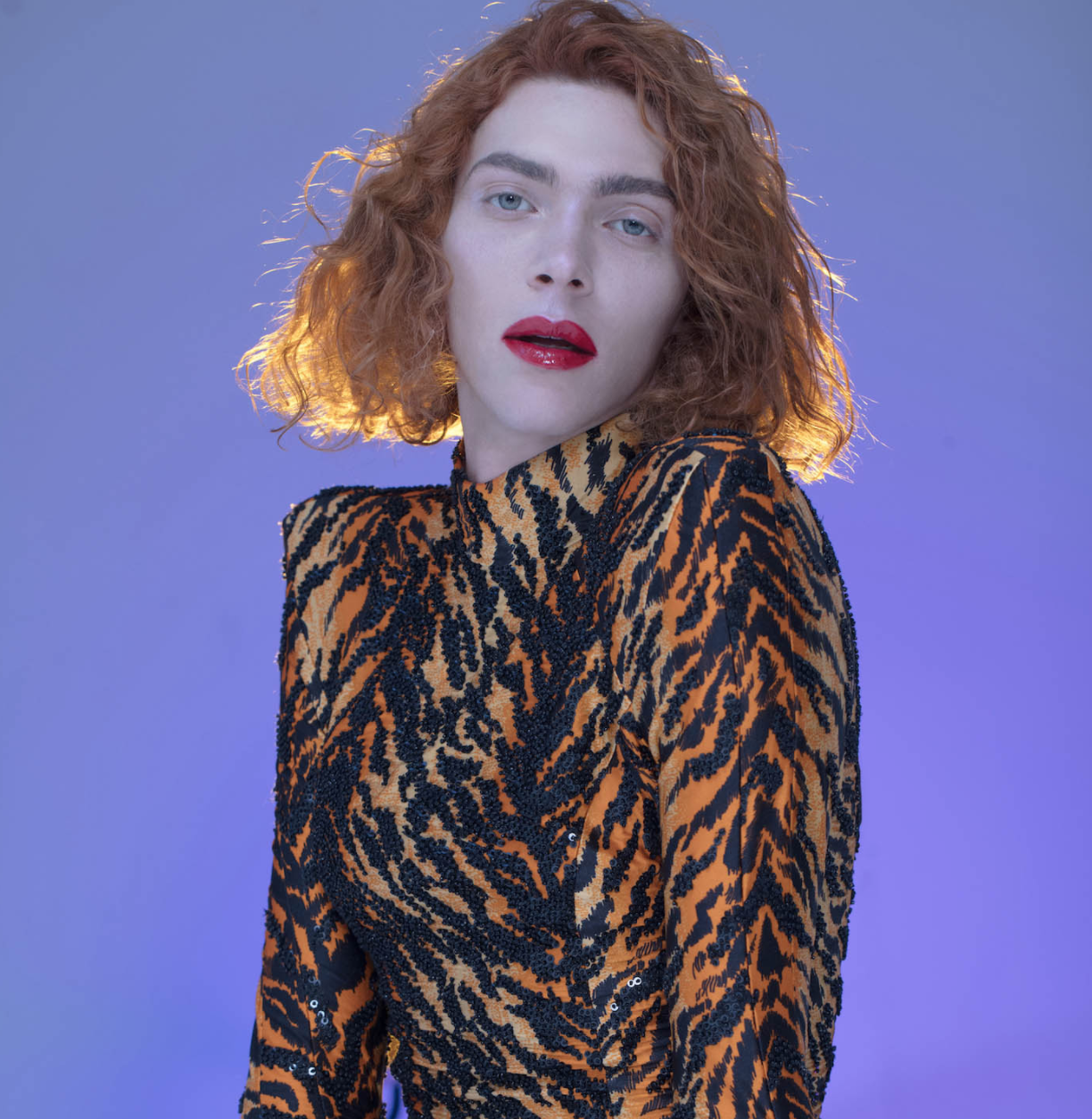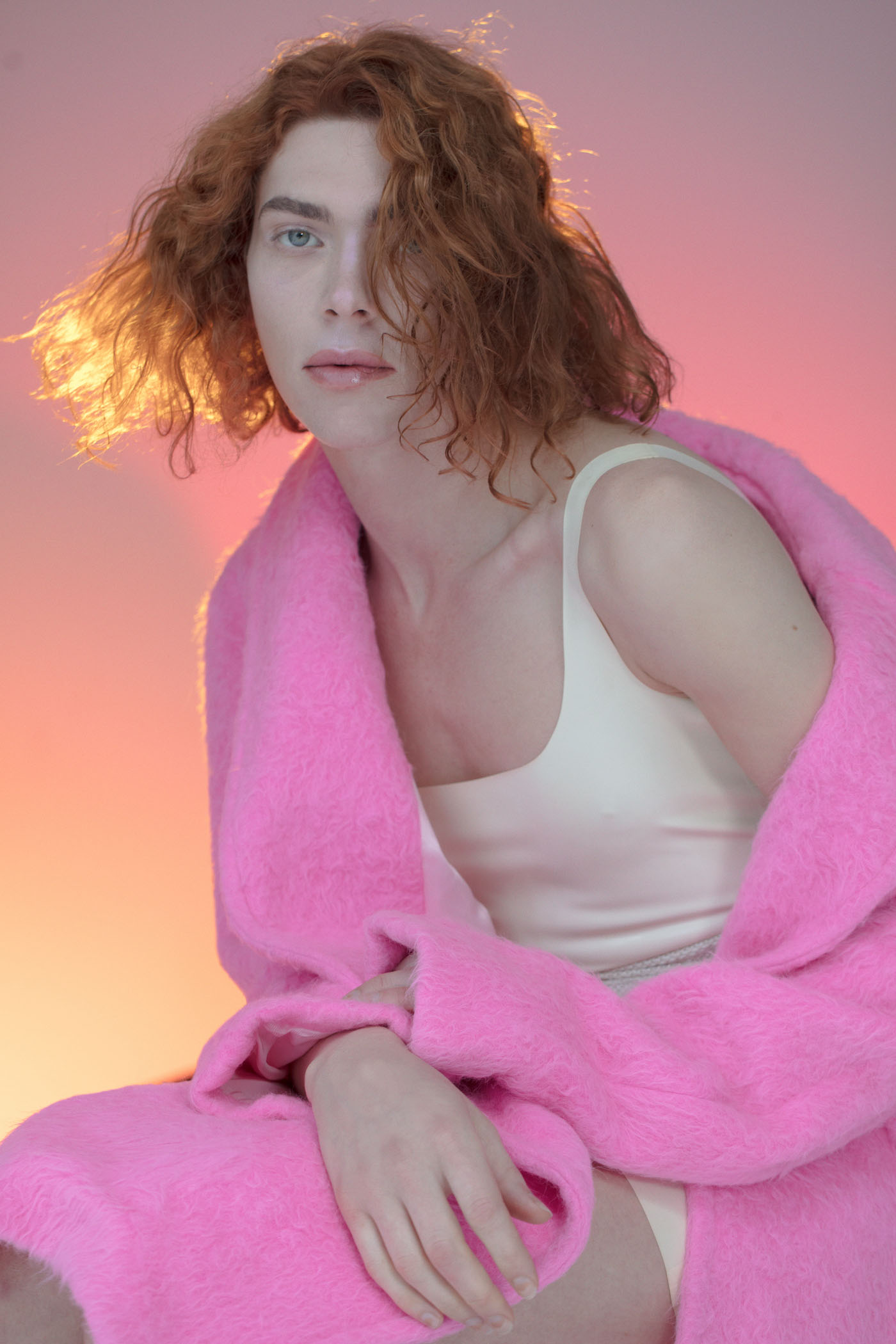This morning we learnt of the tragic news of SOPHIE’s passing. Sorrow does not begin to cover the scope of feelings enveloping the community, family and friends today- we wish everyone our sincere condolences and love. In honour of SOPHIE’s legacy, we wanted to share this interview conducted back in 2018 where SOPHIE gave us the absolute privilege of being on our #129 cover and talking with us. SOPHIE was a pioneer, and the wisdom felt within this conversation moved us greatly.
Rest In Peace ❤️

Scottish singer and producer Sophie Xeon, aka SOPHIE, is one of the pioneers at the vanguard of contemporary electronic (pop) production. With breaking down binaries and boundaries at the essence of her existence, SOPHIE has become an unapologetic force for change and progress in the music industry. To date, she has created otherworldly atmospheres and embedded sparkling synths and heavy bass for none other than Madonna, Charli XCX and, of course, herself. Following early and constant appearances in the circles of London-based art collective and record label PC Music, SOPHIE released her debut, Oil of Every Pearl’s Un-Insides, earlier this year. After years of operating practically anonymously, this release marked the transition into the spotlight.
The artist is using her platform to help carve a new, queer era in which digital spaces challenge but blend into the physical. An era where opportunities for liberation evolve around the creation of imaginary places and where images of a post-pop and post-club utopia spring to life.

Glamcult reaches out to SOPHIE while she’s on a rare and long-anticipated holiday with her mum. So imagine our surprise when she responds within a day with a voice memo of more than an hour in which no question is left unanswered. Listening to SOPHIE speak almost feels like an ASMR experience—albeit minus the heavy whispering. Birds tweet dreamily in the background, while SOPHIE’s soft, clear words and eloquent pronunciation emphasize what her fans like to describe as her angelic voice. At one point, she states: “I feel deeply penetrated by these questions.” Given the authenticity and sincerity of her answers, this becomes the soundbite that sticks most firmly in our minds.
SOPHIE begins at the beginning, reminiscing about going to raves with her older half-brother in the sleepy Scottish town where she grew up. A formative experience for anyone, it impacted ten-year-old SOPHIE indelibly. The coming together of like-minded people—and, specifically, the music that was played—made her feel in a way she simply hadn’t before. She’s been trying to re-create that same experience for herself and for others ever since. And she’s found a young and open-minded audience who seem as receptive now as she was back then.
While listening to SOPHIE’s music or attending one of her ever-evolving shows, you sense a strong focus on experience and the potential to open up to fresh ideas—like a child learning something new. When I tell her this, she replies by paraphrasing Picasso: “The ultimate for any artist to aspire to is to be childlike.” Viewing music or any art form divorced from context and connecting one’s purest and most natural emotions can be difficult; the millennial generation is more detached from physical experience than ever, which makes connecting on deep and personal levels a challenge—especially for young LGBTQs when it comes to building sustainable relationships with their blood family. In a new and unreleased song that SOPHIE introduced at one of her recent live shows, she asserts “family is algorithm”. When asked to elaborate on the meaning of “family”, she says: “I do believe in the idea of a chosen family being a more constructive way to think about families—and obviously gender roles and assignments within typical family models are particularly damaging. This is something I actively want to try and change in my life and with my work.”


A topic that, since her first productions, has dominated SOPHIE’s whole being, is other people’s perception of who she is. So how does she feel about letting go of anonymity? “I feel terrible about it but I also feel optimistic about it. You really cannot trust anyone. Magazines, fans and friends too […] But I feel optimistic that I can find images and ways of presenting myself that I do feel reflect something genuine.” She goes on to talk about the cultivation of an image and the problems with making it public. Reminding us of how much pressure exists to present a “nice” version of oneself to the world, SOPHIE explains that she finds taking photos and selfies an alienating experience, especially for their lack of context, and that she feels very vulnerable in those moments. Ultimately, having her face “at the front of shop” has never been on SOPHIE’s agenda; the essence of her oeuvre is the determined production of innovative music, not the generation of a packaging around that which pleases everyone but her.
With a rising number of interviews and public appearances, SOPHIE seems upset by the media’s obsession with dissecting a person’s past in order to try and understand their creativity in the present. “I just don’t have so much fun looking back. I am way more excited about the future. […] The future seems more real.” As an openly trans-identifying artist, she outlines that real progress is about much more than “being in an Apple Music Pride playlist”. In reality, however, sensitivity is hard to find—in society overall and in queer communities too, but even more so when the majority of people in the business identify as heterosexual and/or cisgender. The fight for equality, when presented to the mainstream, often results in an individual’s presentation as part of an “other”. Expectations of what different identities have to look or be like, and what stereotypes they have to fulfil, frequently lead back to categorization. Presenting an honest and transparent picture to the public comes at a price as the industry—even when aiming to support—often defaults to tokenizing.
“In my view, the essence of transness has nothing to do with high heels and has nothing to do with lipstick but more with transnational borders, transgenerational, transgender […] Being trans means that you simply don’t acknowledge these binaries and therefore, to be a ‘T’ in an LGBT playlist is nowhere near enough. Nowhere.” Since working within popular culture and performing in an entertainment context seems to revolve around amusement, the severity and significance of SOPHIE’s core messages are easily—and regularly—dismissed. But it’s a serious affair that artists such as SOPHIE are engaging in: sabotaging pop music to deconstruct it, reconstruct it and achieve sustainable change for the better. “We want to own the music industry. We want to dictate what happens in culture and how music is received and how it is delivered […] We don’t want somebody else’s token appreciation or superficial acceptance of the fact that someone feels better wearing whatever they choose to wear.”
It’s pretty much public knowledge that SOPHIE isn’t a fan of the album as a musical medium. As we go to press, she has just finished a double remix album of her debut, which will come out in clutch bag format around Christmas and, according to its creator, “gives more of an impression of how I think an album should be presented”. When pushed on how she perceives her own record, SOPHIE is unequivocal—“I think it’s a good album”—yet while she acknowledges the effectiveness of the industry construct, the question is whether listeners have the time or attention span for hour-long experiences these days. Revisiting a track like ELLE, part of a series of songs published individually with autonomous but related artworks between 2013 and 2015, one gets a clearer idea of how SOPHIE imagines her work being released. It’s hard to imagine that ELLE was released five years ago (its samples would perfectly fit in the context of today’s deconstructed club sounds), but it perfectly encapsulates the physical and material textures of sound that continue to be a driving force behind SOPHIE’s productions.

Displaying vulnerability through noise and voice, one of SOPHIE’s unique skills—heavily aligned to the prevailing zeitgeist—is her ability to animate feelings and emotions solely through technology. Choosing not to use recorded samples, she shifts away from anything organic or human and through doing so creates a common ground that attracts young listeners all over the globe. Not surprisingly, SOPHIE views this differently than most: “I don’t really differentiate between organic and synthetic, which is some of the ideas I try to express in my album for instance. I don’t really see them as separate and I feel like our so-called organic worlds are evolving all the time […] It’s an evolving landscape of sound and I see the digital age as also being a factor in that.” Drawing an elaborate digression towards music influenced by industrial sounds, SOPHIE presents a continuous perspective on existence and creation. With more tools than ever at hand, utilizing them is the only thing relevant and useful in her eyes. Her intention? “Creating things that feel like the complete representatives of the chaos and confusion we’re all surrounded by at the moment.” When asked what music should be right now, SOPHIE responds unequivocally: “It should be mind-blowing! Every single thing you hear should feel like you’ve never heard something like that before. Like it makes you feel alive in a new way. Like it makes you feel reborn.”
Over the course of our interview, we learn more and more about SOPHIE’s version of natural selection. It is essential to her that things happen naturally—including her collabs, where she always needs some sort of connection with the other protagonist(s). The artist identifies authenticity by means of a process of conversation and decision-making: “When I’m working with someone like Lady Gaga, Bibi Bourelly or Kim Petras, we have a discussion more about how I see things in the world. In a studio environment, you’re really making decisions every split second, which reveal something very fundamental about the way you think.” Based on that same train of thought, SOPHIE is eager to criticize fellow British pop artists like Adele, Ed Sheeran and Sam Smith for contributing to a patriarchal system that’s comfortable for a lot of people but is not future-oriented. Her perception of reality and investigations of surroundings and environment suggest that music needs to change in order for society to develop as well. Pop music needs to be liberating and connect people. It needs to carry that message. Yet connection, a reoccurring theme for SOPHIE, doesn’t translate to all the areas one might expect it to—at least, not to all the conventional ones. For example, her opinions on and usage of social media—the ultimate connection tool these days—could be confusing to some. But actually, her approach is beautiful in terms of how old-fashioned it sounds, but then turns out to be very realistic, pragmatic and almost futuristic. “Why would I bother trying my hardest to make an Instagram page look appealing when I can be more free-form, more expressive and more creative in my music and in my artwork?”

Forging a path towards the future includes making decisions that are not always easy or comfortable. It means not only knowing what you yourself want, but also having the guts to make clear statements and give instructions to others. Unafraid to speak up for herself, the subject of authenticity comes up once more when SOPHIE talks about cancelling some of her previous tour dates because she felt like the location or setting wasn’t welcoming. “If all of these people want to come and pay for this experience, and I want to give it to them, why is anyone else’s decision stopping that from happening? […] At a certain point you just have to say no, not any more. I don’t need or want this presence of someone else’s system in my life or in my work anymore. I will only do the things that make me feel like I’m where I want to be, and create my version of utopia.”
Wrapping up the conversation, we find ourselves agreeing that collaboration is the path to “superhuman strength” and defying the negative or limiting. Yet a protective system is still to be established. When collaboration is the way to create safe spaces, we need to trust the power of community. And incorporating dystopia is a part of finding that utopia. For SOPHIE, utopia has to be found in continuity: “heaven and hell”. And with her album outro, Whole New World/Pretend World offering the future-driven soundtrack for this thesis, one can start to comprehend that in ambivalence, diversity and continuity lies precious potential. The potential to rethink what the past has brought and, most importantly, the potential to persistently shape the future. We just need to focus, trust the unknown, trust each other, and grab hold of it. That’s what SOPHIE is allowing us to see and hear—and it’s moving us forward.
Interview by Julius Pristauz
Photography by Renata Raksha
Styling by Tess Herbert
Hair and make-up by Marcelo Gutierrez
Photography assistant by Eduardo Silva
Special thanks to Slate Studios, New York
This interview was conducted in 2018, and featured in The UTOPIA Issue.
At the time of this conversation SOPHIE used she/her pronouns, but today the artist is only referred to by name- SOPHIE.